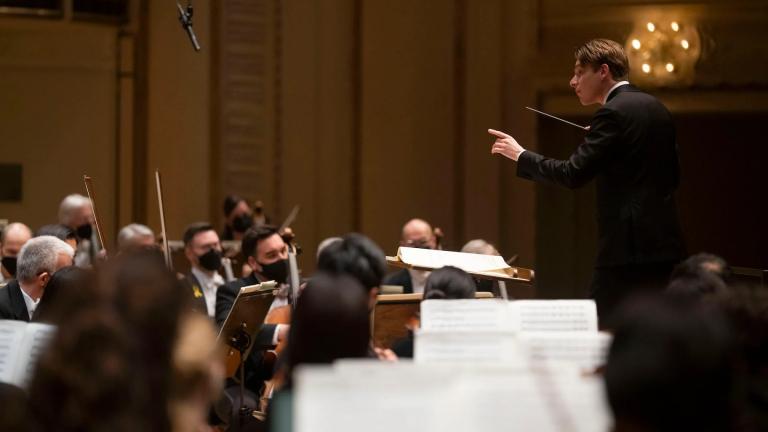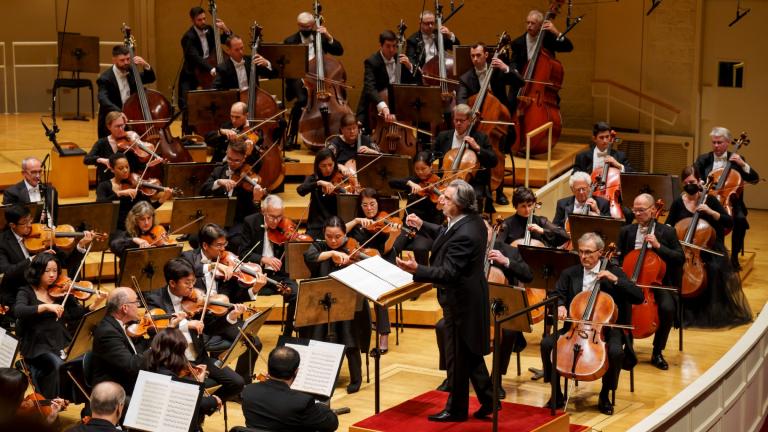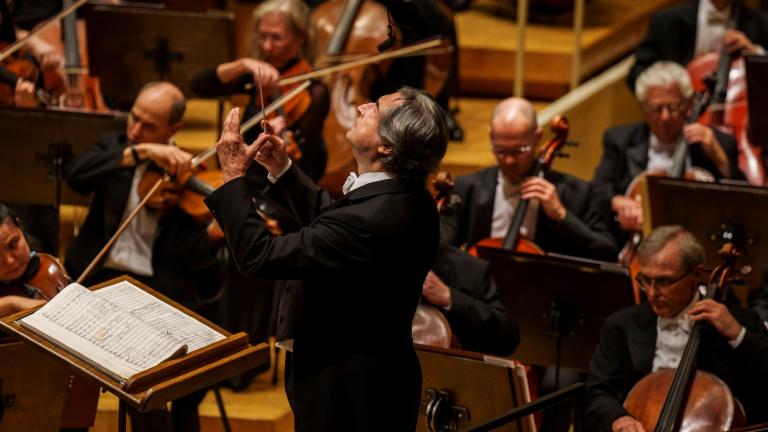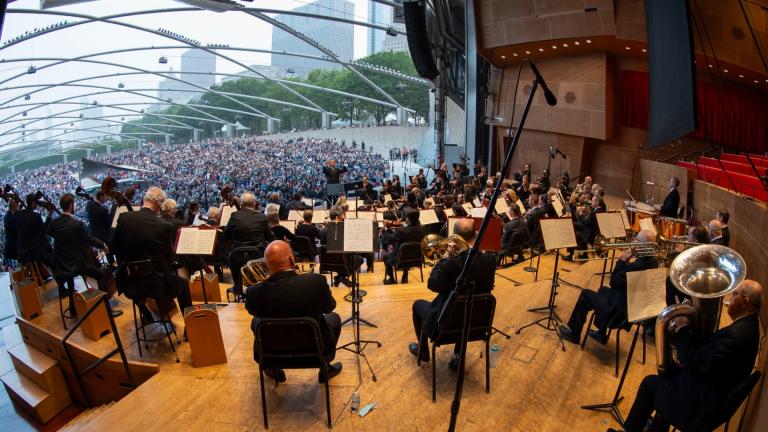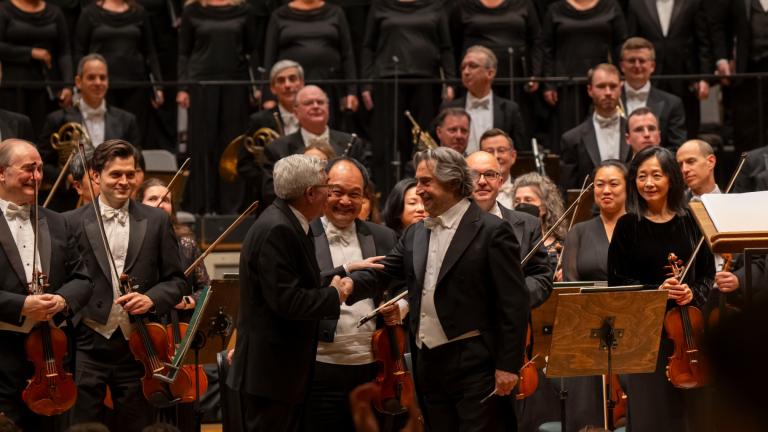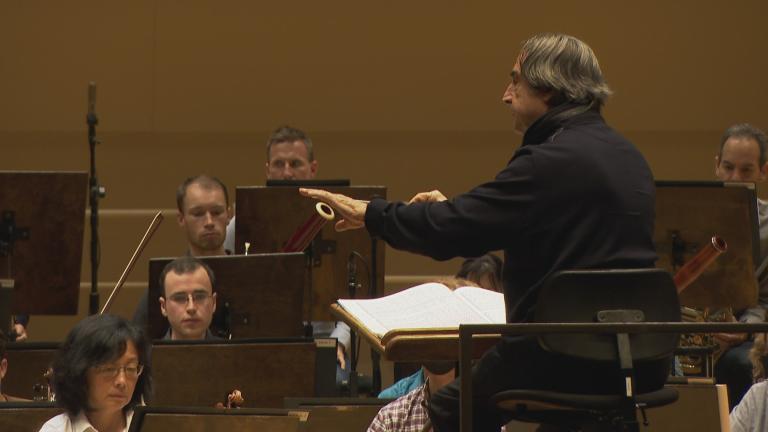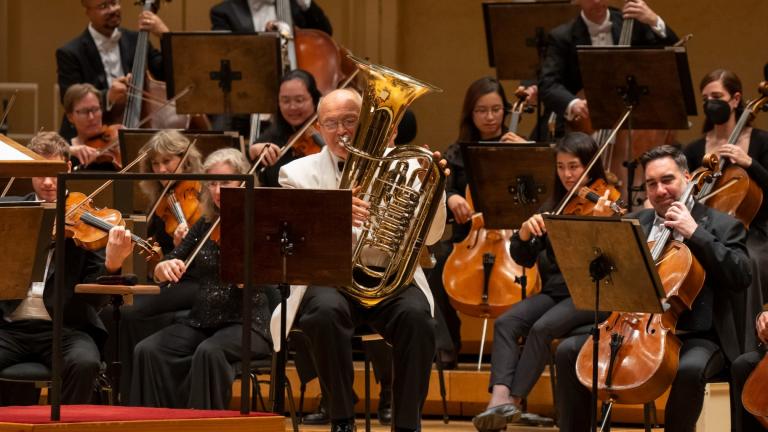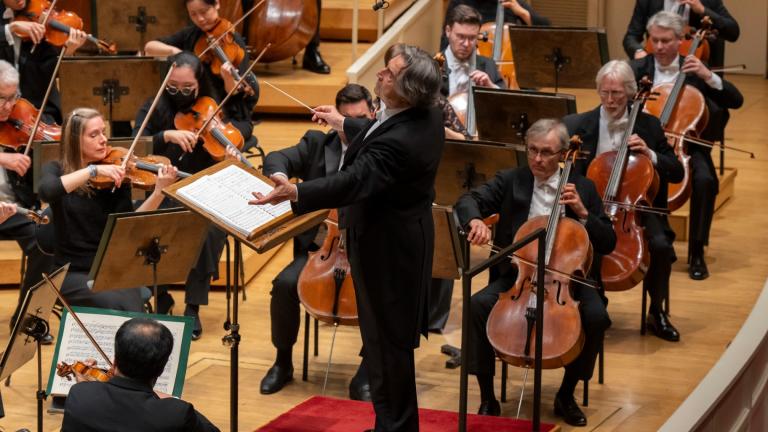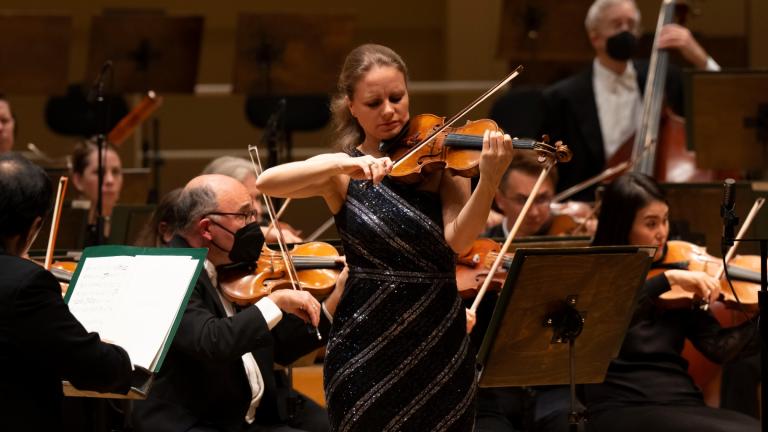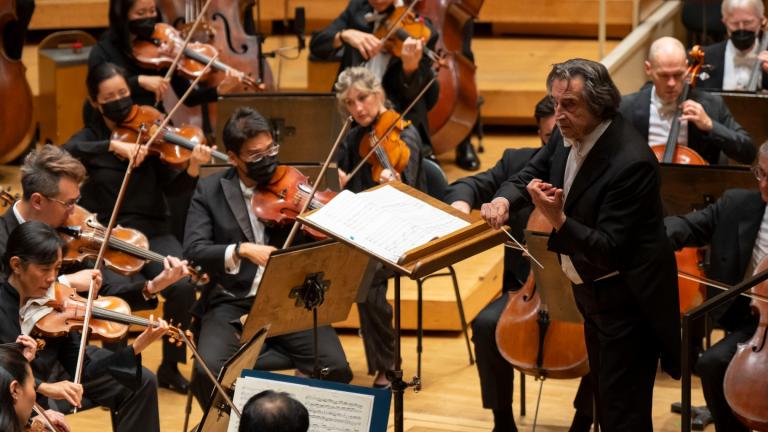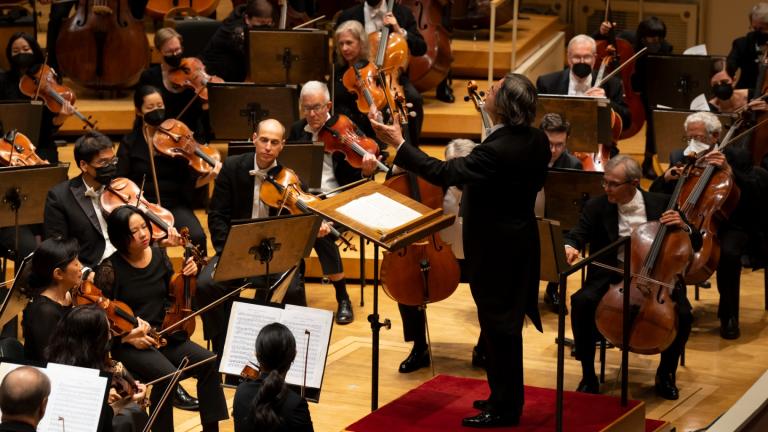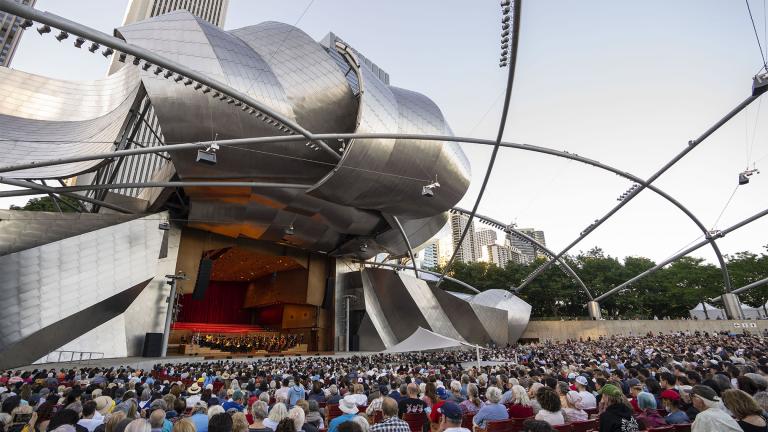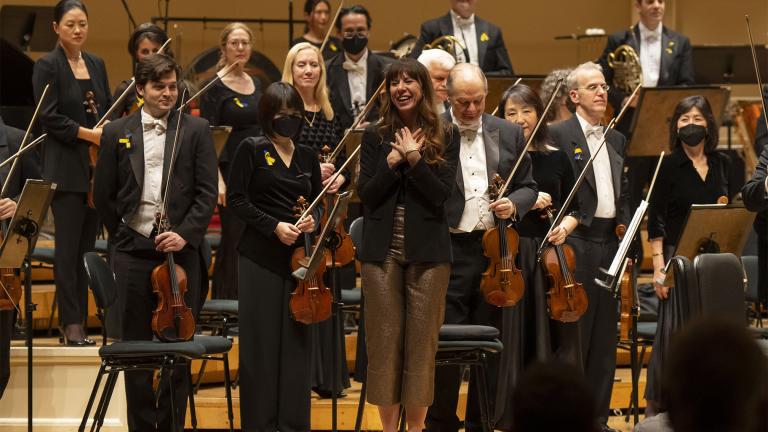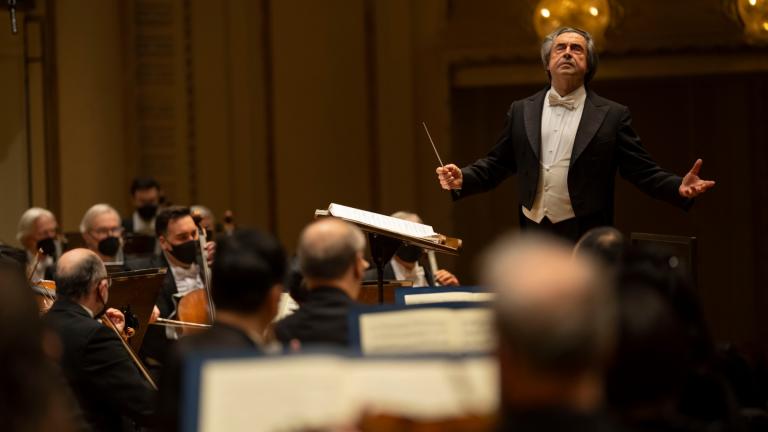Klaus Mäkelä has been called “perhaps the fastest-rising conductor of his generation” by The New York Times. He will be the 11th music director in the ensemble’s 133-year history.
Riccardo Muti
Although Maestro Riccardo Muti will soon head to New York and embark on a seven-country, 14-concert tour of Europe with the Chicago Symphony Orchestra, his concert at Orchestra Hall on Thursday evening was an ideal example of the thrilling bond between him and the CSO’s brilliant musicians.
Something truly magical (and magnificent) happens when Maestro Riccardo Muti arrives on the podium to conduct the Chicago Symphony Orchestra. The latest proof was on display in two different concerts this past Thursday and Saturday evening.
With an audience approaching about 8,500 people, Maestro Riccardo Muti led the Chicago Symphony Orchestra at the “Concert for Chicago” in Millennium Park. He ended his 13-year tenure as CSO music director but will continue to conduct some performances.
Maestro Riccardo Muti chose Beethoven’s “Missa solemnis” as the work he wished to conduct to mark “the official end” of his glorious 13-year tenure as music director of the Chicago Symphony Orchestra. He has been named music director emeritus for life and will continue to lead occasional CSO performances.
Maestro Riccardo Muti, who turns 82 in July, is scheduled to conduct the CSO for six weeks in each of the next two seasons. His tenure began with the 2010-11 season.
The tuba may be one of the largest instruments in a symphony orchestra and an important source of the brass sound, but it is rarely celebrated in a work that puts it front and center by way of a masterful composer and musician.
Something magical happens when Maestro Riccardo Muti arrives on the podium at Orchestra Hall to lead the invariably superb musicians of the Chicago Symphony Orchestra.
At a recent concert, the Chicago Symphony Orchestra played Schumann’s “Violin Concerto in D Minor” and Tchaikovsky’s fiercely dramatic “Manfred Symphony.” The beauty and dramatic energy of both works were wholly captivating, critic Hedy Weiss writes.
What truly set Orchestra Hall on fire came in the second half of the program as Maestro Riccardo Muti, in subtle but wonderfully expressive balletic form, led an altogether blazing performance of Prokofiev’s “Symphony No. 5 in B-flat Major,” a 1944 masterwork composed at the height of World War II.
If you needed to be reminded of the glorious sound Maestro Riccardo Muti has nurtured during his 13-year tenure as music director of the Chicago Symphony Orchestra, Thursday evening’s concert, marking the start of the 2022-23 season, served as a perfect example.
This weekend marks the beginning of the end of Maestro Riccardo Muti’s tenure as music director of the Chicago Symphony Orchestra. WTTW News visited Symphony Center to hear him lead the orchestra in a rousing rehearsal of works by Tchaikovsky.
An audience of 12,000 people poured into Millennium Park Monday evening to hear maestro Riccardo Muti lead the Chicago Symphony Orchestra in a thrilling performance of works by Shostakovich and Tchaikovsky on the Pritzker Pavilion stage.
Thursday evening’s bravura production was a major event in Muti’s penultimate season as the CSO’s music director. And it was a grand homage to both the composer whose work he has long cherished, and the orchestra he has embraced and nurtured since becoming its music director in 2010.
Maestro Riccardo Muti and the musicians of the Chicago Symphony Orchestra featured three very different and extremely challenging works Thursday night that, as always, showcased the brilliance of both the composers and their interpreters.
The CSO's bravura rendering of this masterwork was, indeed, a temporary balm for the soul and evidence of how great works of art speak to us throughout time.

